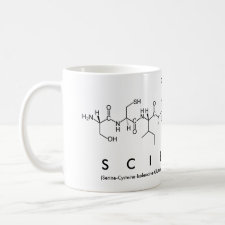
Authors: Quaglia M, De Lorenzi E, Sulitzky C, Caccialanza G, Sellergren B
Article Title: Molecularly imprinted polymer films grafted from porous or nonporous silica: Novel affinity stationary phases in capillary electrochromatography.
Publication date: 2003
Journal: Electrophoresis
Volume: 24
Issue: (6)
Page numbers: 952-957.
DOI: 10.1002/elps.200390138
Abstract: Molecularly imprinted composite materials were evaluated as chiral stationary phases in capillary electrochromatography (CEC). These consisted of spherical silica particles of different sizes and of different porosities, containing a surface-immobilized layer of molecularly imprinted polymer (MIP) targeted to bind L-phenylalanine anilide. Fused silica capillaries were packed over a length of 8.5 cm, using a pneumate amplification pump, and the stationary phase thus obtained was tested with respect to its electrochromatographic performance. The electroendosmotic flow (EOF) mobility was evaluated with respect to the content of grafted polymer, as well as the ionic strength and the acetonitrile content of the electrolyte. Moreover, the influence of the layer thickness and of the stationary phase porosity on the performance and on the sample load capacity was investigated. The packings exhibited different relative efficiencies for the two enantiomers. The results were discussed in terms of differences in accessibility to the binding sites of the packings and of the mechanism of EOF generation. In the wide context of the different approaches so far proposed for MIP stationary phases in CEC, these materials can be a good alternative, worthy of further development and application, not restricted to chiral separations



Join the Society for Molecular Imprinting

New items RSS feed
Sign-up for e-mail updates:
Choose between receiving an occasional newsletter or more frequent e-mail alerts.
Click here to go to the sign-up page.
Is your name elemental or peptidic? Enter your name and find out by clicking either of the buttons below!
Other products you may like:
 MIPdatabase
MIPdatabase









